Are you facing challenges with your occupational license? It can be frustrating when bureaucratic hurdles stand between you and your professional goals. In this article, we'll explore effective ways to address your concerns and craft a compelling complaint letter that captures the attention of the authorities. So, let's dive in and empower yourself with the right tools to navigate this process smoothly!
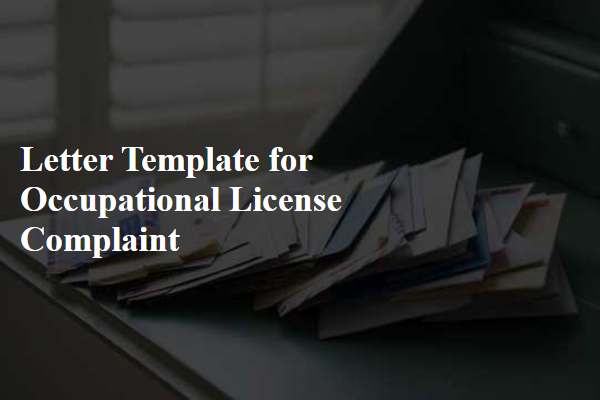
Accurate Identification of Parties Involved
When filing a complaint regarding an occupational license, it is essential to provide accurate identification of the parties involved. For instance, include the complete name of the individual or business holding the occupational license, such as "John Smith, Owner of Smith's Electrical Services" located in Springfield, Illinois. Make sure to list the license number, if available, which can usually be found on official documentation or the state licensing board's website. Additionally, identify the complainant by stating your full name, address, and contact information, ensuring clarity in communication. Specify the relevant licensing authority or organization overseeing occupational licenses in your state, like the Illinois Department of Financial and Professional Regulation. This detailed identification creates a solid foundation for addressing the complaint effectively.
Clear Description of the Complaint
An occupational license complaint typically involves issues such as non-compliance with regulatory standards or misconduct in professional practice. For instance, a licensed contractor in California may engage in unsafe construction practices, leading to structural hazards. Specific incidents, such as failing to adhere to the California Building Code (CBC), can endanger public safety. Documentation may include photographs displaying inadequate safety measures, records of reported safety violations, or witness testimonies that corroborate such misconduct. It is crucial to detail the specific actions or inactions that constitute a breach of professional ethics or regulatory compliance. Serious offenses could also involve fraudulent documentation of completed work, leading to financial loss for clients or community safety risks. Timely reporting of these issues to relevant regulatory bodies like the Contractors State License Board (CSLB) is essential for enforcement of regulations and accountability.
Relevant Documentation and Evidence
Occupational license complaints require thorough documentation to substantiate claims. Essential evidence includes the license number, which uniquely identifies the subject of the complaint, and detailed records of relevant incidents, including dates and locations. Photographic evidence or video recordings supporting the complaint can provide visual documentation of violations. Witness statements from individuals present during the incidents can lend credibility and corroboration to claims. Additionally, previous correspondence with licensing authorities may illustrate the history of the complaint and attempts at resolution. Any applicable law or regulation references should be included, highlighting specific breaches affecting the licensee's compliance.
Specific Legal or Regulatory References
Inadequate oversight of occupational licensing can lead to significant discrepancies in compliance and enforcement. Specific legal frameworks, such as the Occupational Safety and Health Act (OSHA), established in 1970, provide guidelines to ensure safety and health standards in workplaces across the United States. Regulatory agencies, like the Department of Labor, utilize these statutory guidelines for monitoring adherence to licensing requirements. Additionally, state-specific licensing boards, governed by state statutes, enforce criteria that professionals must meet to obtain and maintain their licenses, which can vary significantly by occupation. Failure to comply with these regulations could lead to penalties or the revocation of occupational licenses, impacting the ability of professionals to operate legally within their respective fields.
Request for Desired Resolution or Action
Occupational licensing complaints often arise when individuals encounter issues with the regulatory process or experience delays. Specific complaints may involve the processing time exceeding the average duration of 30 to 60 days, lack of communication from licensing boards, or discrepancies in application requirements. Individuals typically seek resolutions such as expedited processing, clear communication regarding application status, or re-evaluation of denied applications. In many jurisdictions, licensing boards, such as the California Department of Consumer Affairs or Texas Department of Licensing and Regulation, provide formal channels for complaints, which can include submitting detailed documentation outlining issues, desired resolutions, and relevant timelines.
Letter Template For Occupational License Complaint Samples
Letter template of request for review of occupational license complaint.
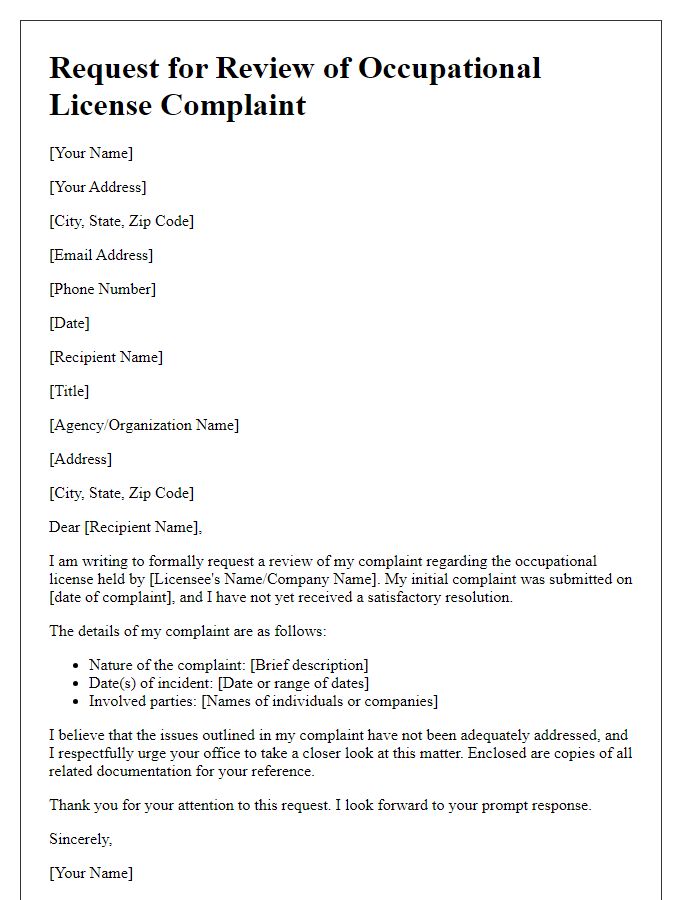

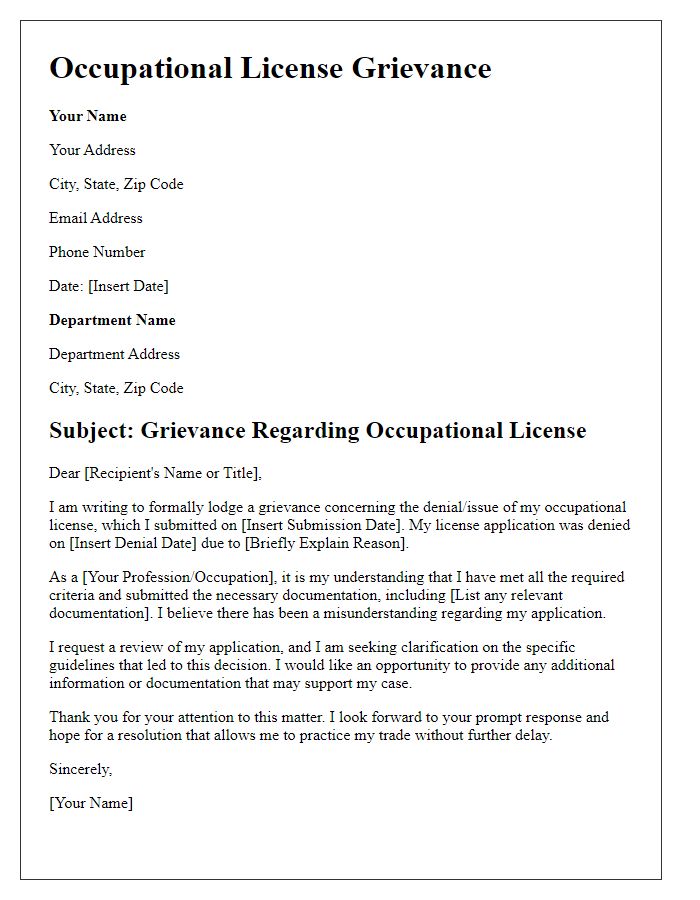
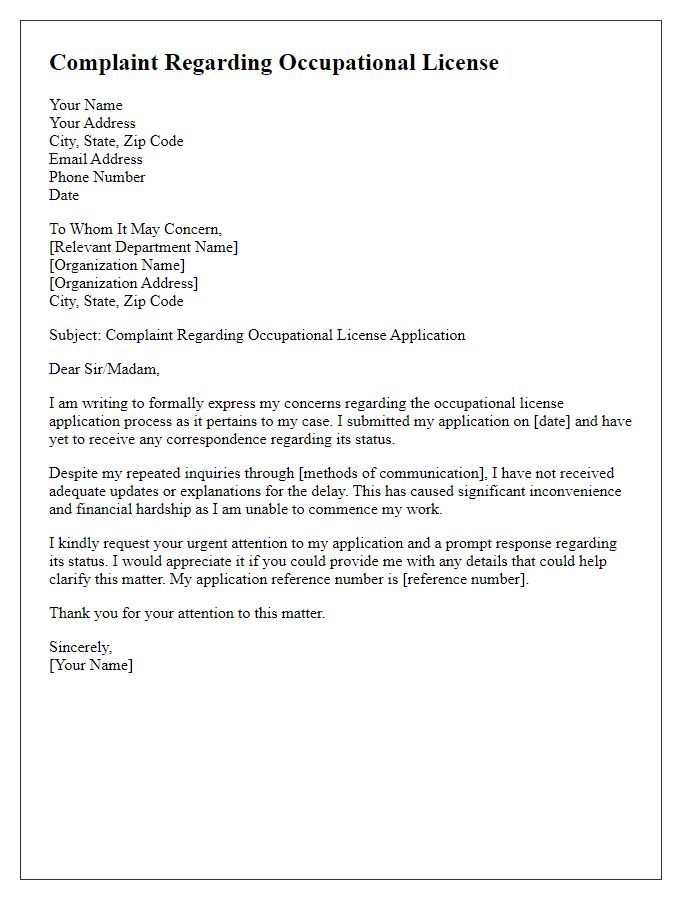
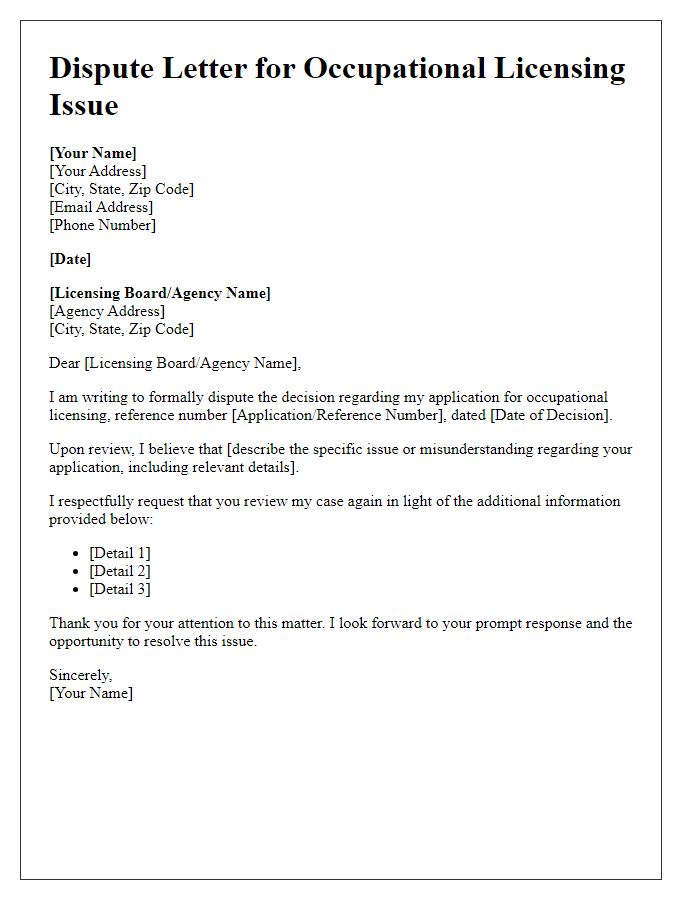
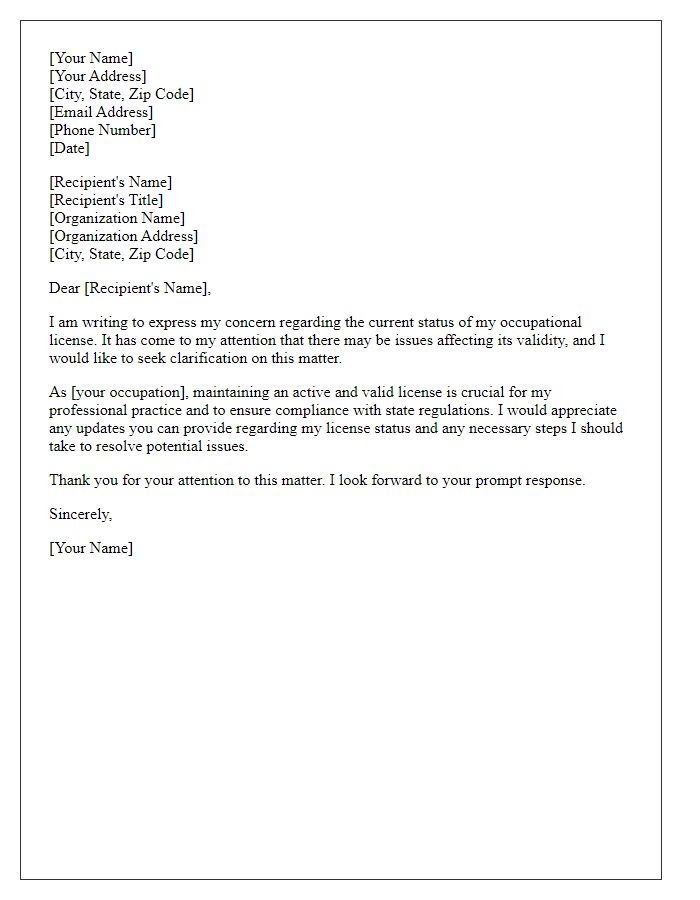
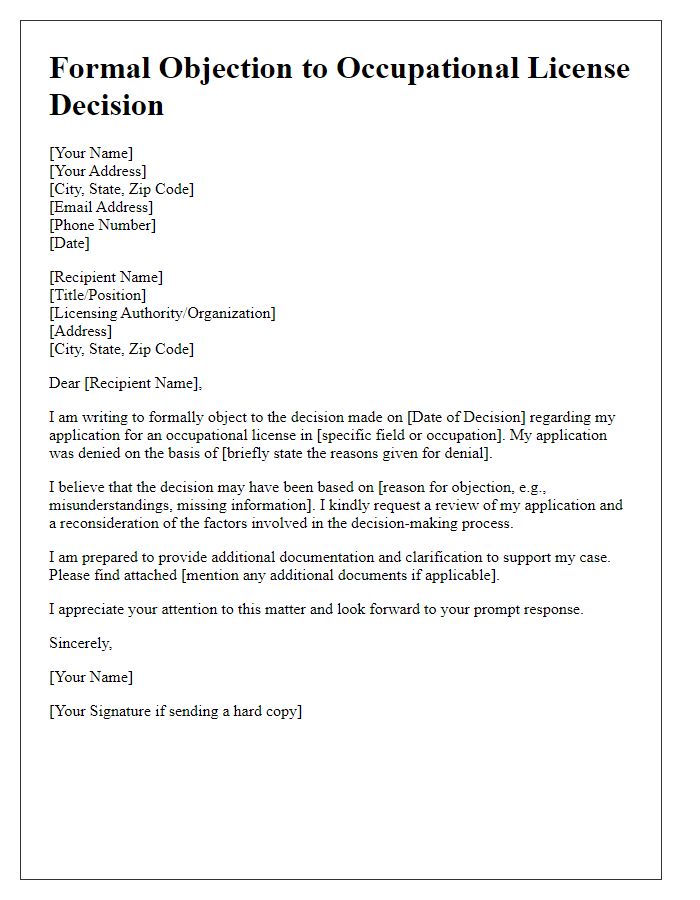
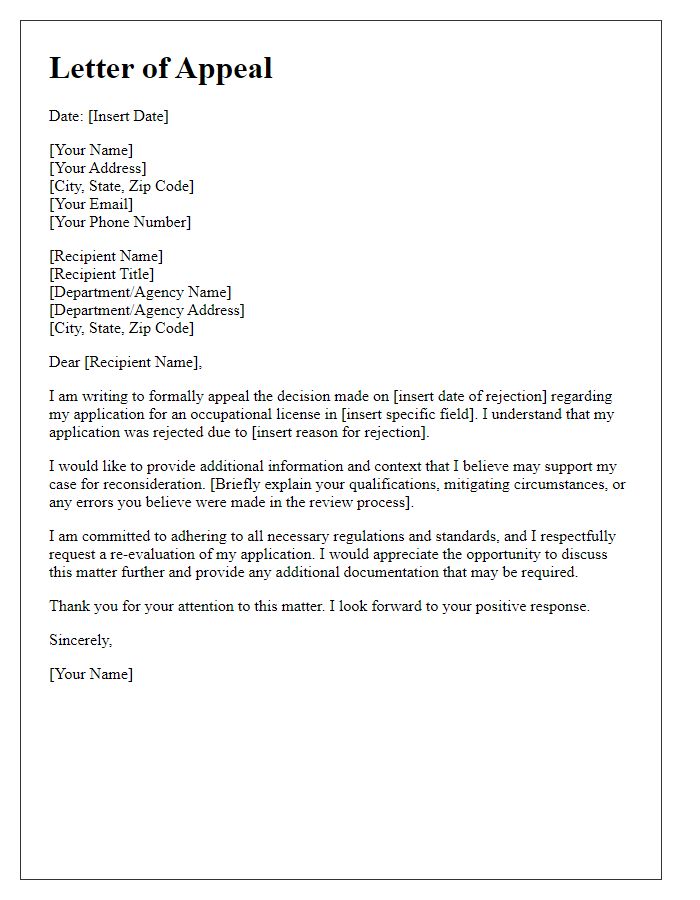
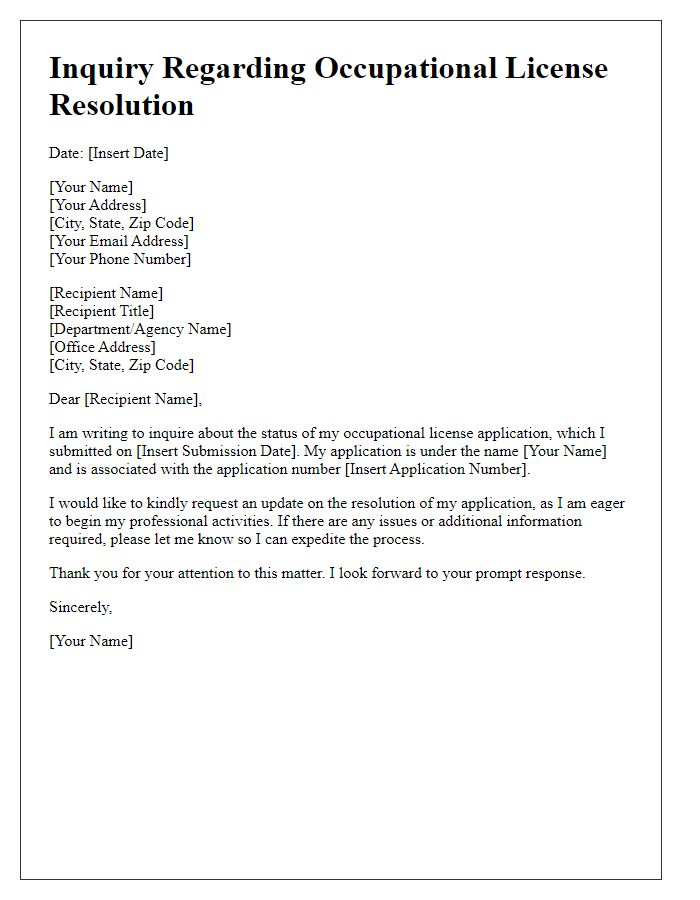
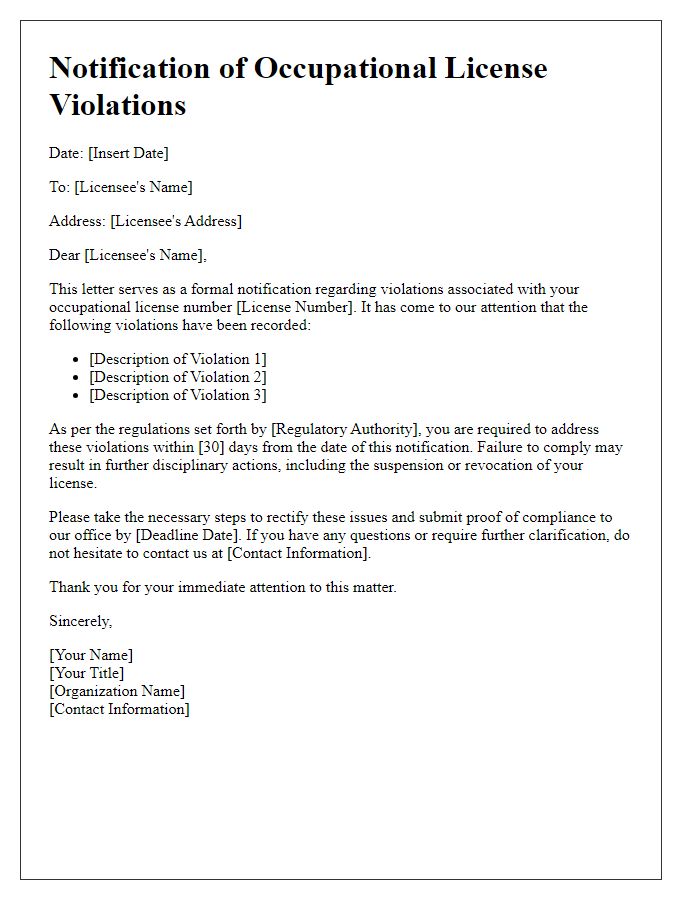
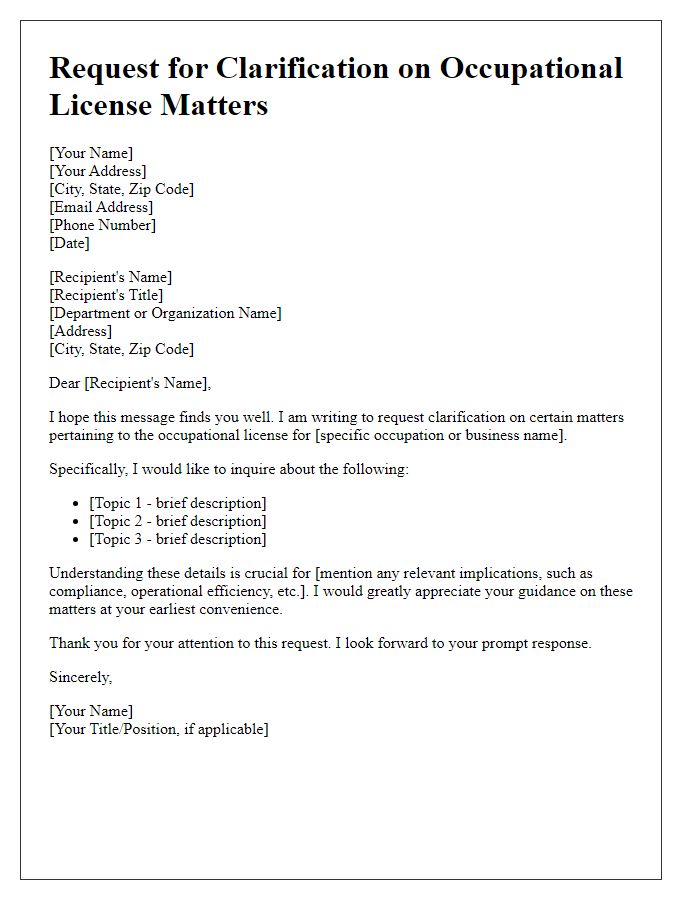

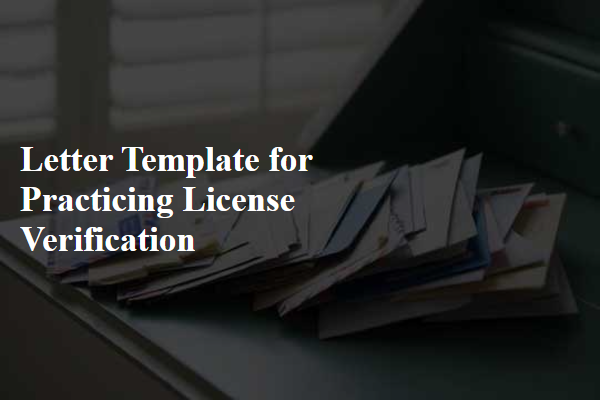
Comments